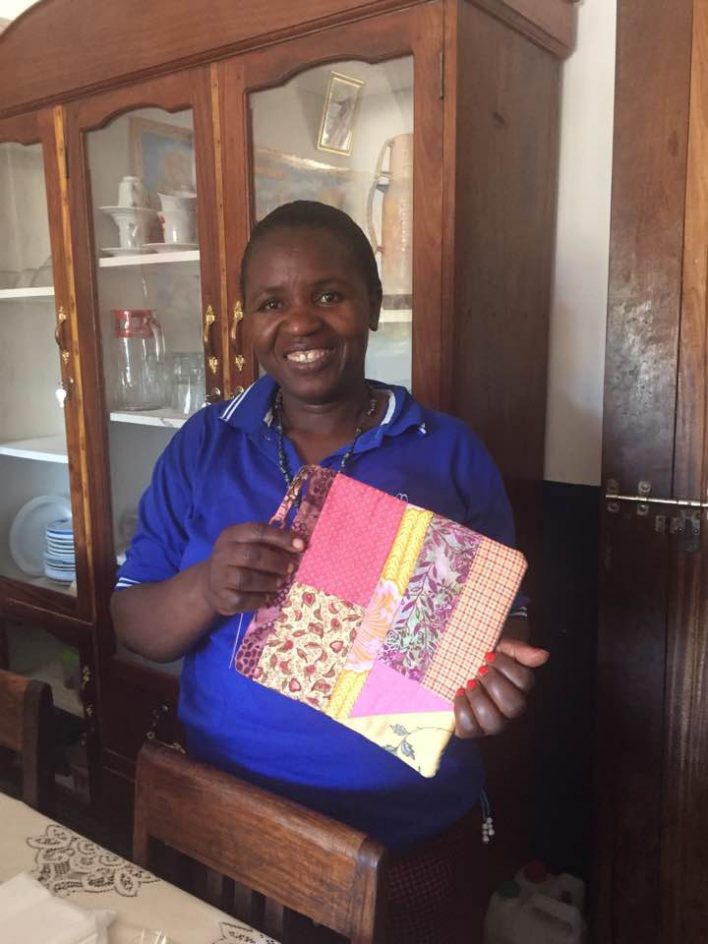 Our friend and Episcopal Minister Dahn Gandell has been posting photographs on her Facebook page of Maria’s potholders touching lives in Tanzania, she says they mean a great deal to the people she is giving them to (she took a bunch with her.) Rev. Gandell travels through the world helping women in need.
Our friend and Episcopal Minister Dahn Gandell has been posting photographs on her Facebook page of Maria’s potholders touching lives in Tanzania, she says they mean a great deal to the people she is giving them to (she took a bunch with her.) Rev. Gandell travels through the world helping women in need.
Dahn has also invited Maria to come to Calcutta (Kolkata now) to teach free former sex trafficking slaves to make potholders and other fiber arts.
As some of you know, Maria has been raising money for the trip. Her efforts have been successful. She has been getting donations through our Post Office Box – P.O. Box 205, Cambridge, N.Y., 12816 and has set $6,000 in contributions as a goal on her new indiegogo.com page, which has raised.
As of this morning, that page has raised $3,558. That money and the money raised on our blogs – and a matching grant of $1,000 and also through the P.O. Box totals more than $7,000 and makes it certain that Maria can go to Calcutta in February.
If people wish to continue making donations, they are welcome, and the money will be used to help the women Maria and their families that meets and teaches in India. My role in this – helping to raise the necessary funds – is now essentially over, other than to cheer Maria on, encourage her and support the trip in every way I can.
And to miss her when she goes. She will be writing about this trip regularly on her blog.
Any additional funds she receives will be put to good use, it is an expensive and complicated trip. She is determined to help these women in any way she can.
The potholder is larger than itself, I have known that for a few years now. When Maria was broke and frightened and struggling to make a life as an artist, she seized on the humble potholder as a way to make her art and possibly make a living. It was inexpensive and useful.
I remember the first winter we were together – 2008, I think it was – Maria made several hundred potholders in her signature way – from discarded fabrics.
They changed her life, they gave her the confidence to believe she could make affordable art that people would buy, that the could make a living at it, that she could follow her own true nature and stop feeling like a slave to the wishes and judgments of others. She also showed that the humble potholder could be turned into an art form, and still be useful in kitchens.
It is simply amazing to see women in Tanzania, and soon, India, grasping its meaning and potential. Maria is profoundly touched by the idea that she can import her own story, and the story of the potholders, to women who have exploited and diminished in so poignant a way.
If you wish to contribute to this journey, thanks, you can do so by going here. You can also support this passage in ways other than by offering money – by wishing her well, cheering her on, following her story. She now has enough money for airfare, hotel, food, visa and vaccinations, supplies, fabrics and expenses – and thank you, thank you, thank you. I am excited for her, and for once, beyond words.
A number of very beautiful spirits have written us saying they can’t contribute now but are wishing her well. From our perspective, that is surely a contribution.
